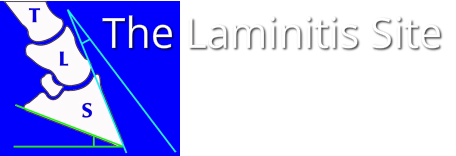One horse was reported as changing from being a gentle giant to kicking out (particularly when having his belly groomed or rugs changed), biting, squealing, being sensitive to touch and difficult to catch, with his owner being unable to pick up his feet or groom him some days. The horse had recently started on Prascend but the unusual behaviour preceded treatment and had been going on for several months. Some days he seemed fine but lethargic, others horrible. He was also difficult to keep weight on and had had several weeks treatment for possible gastric ulcers with Gastroguard - scoping post treatment found no evidence of gastric ulcers, he wasn't scoped before treatment started so it isn't known whether he did actually have ulcers.
Another owner reported a similar experience with her pony gelding. Before starting Prascend he wouldn't tolerate being brushed and would lift a leg in warning if his owner for example looked at his sheath area (which was swollen). Prascend was started and he became aggressive towards other horses so had to be kept separate, he was unpredictable and although he appeared to enjoy being ridden, he would sometimes stop and refuse to go forwards without a battle. After several months of treatment with Prascend he's back to his normal self, and his owner concluded that his hormone levels had to settle down and adjust.
A cob gelding in his 20s was diagnosed with PPID and started treatment with Prascend just over a year ago. He became aggressive after starting treatment, kicking out when being handled and biting, becoming very sensitive to being touched, nervous and difficult to catch. He has arthritis in front and hind legs.
We do rarely hear reports of hyper-excitability, nervousness and behaviour changes with both PPID and pergolide/Prascend, but it seems to be far more normal for horses with PPID to be lethargic and docile. What may happen is as the Prascend takes effect, the anti-inflammatory, pain relieving and sedating hormones (e.g. alpha-MSH, beta-endorphin) produced in excess are reduced, and any existing pain is likely to be more obvious - this is often seen if horses have arthritis.
In the Ask the vet live: Equine Cushing’s Disease (PPID) in September 2012 with Nicholas Frank and Marian Little, an owner asked:
Q. Can treatment with pergolide make horses more irritable/unpleasant?
And received the answer:
Owners of PPID horses often say “the lights are on but no one’s home” – over time PPID tends to
make horses more lethargic & docile.
Often when treated with pergolide horses become much more energetic and perhaps bolshy – likely
restoring the normal function of the pituitary that the horse lost some time ago – horses with
advanced PPID are often very gentle with sweet personalities, and sometimes owners prefer their
PPID horse to the one they find after treatment!
Also when some of the excess “feel-good” hormones are removed with treatment, some horses start
to feel age-related aches & pains that were masked with PPID – need to rule these out.
We know that horses can have large variations in hormone levels just a few days (or hours) apart, perhaps that might help explain daily variations in temperament.
Aggressive or unusual behaviour could be a pain reaction, and may not necessarily be linked to the PPID or treatment, and your vet should always be consulted.
The FDA New Animal Drug Application for Prascend Sept 2011 lists " Behaviour change – 5% - included kicking, aggression, agitation, nervous behaviour and increased activity. One horse required a temporary reduction in dose due to energetic behaviour" when horses with PPID were started on 1 mg Prascend.
If you believe that aggressive behaviour is related to Prascend, you should report it:
Please report adverse reactions to Prascend
But be certain that the changes seen started after treatment with Prascend was introduced.
Ensure that the horse's diet is providing all essential nutrients in the correct balance - Diet.

 RSS Feed
RSS Feed